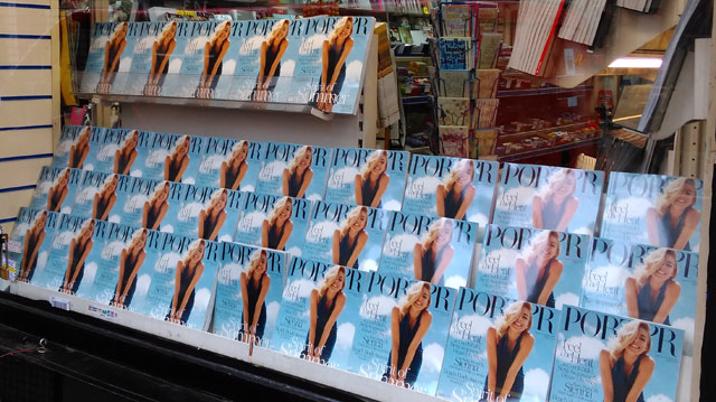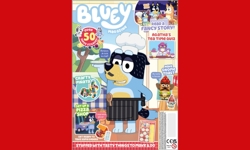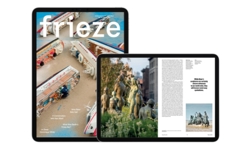
Bill and Tom Stocker were late for our meeting. They had got chatting to the owner of the bookshop around the corner, no doubt persuading him of the merits of stocking magazines. It’s that personal touch, the human contact that was once such a feature of magazine sales, that MMS (which stands for Magazine Merchandising Services) brings to the game. MMS, whose merchandisers visit key sales outlets day in, day out, is the link between publisher and retailer. They are the publisher’s eyes and ears on the ground.
MMS was founded in 1998, by chance! Bill had been working for Thames News, one of the last independent London wholesalers. When the company was purchased by Surridge Dawson, The Economist asked Bill if he would take on their merchandising work on a freelance basis. He agreed, new clients, including Private Eye and Newsweek, came on board and the business grew. The company then added direct deliveries to its service offering, again by chance. Newsweek wanted its copies out a day earlier than the wholesaler could manage (to steal a march on Time magazine) and asked Bill if he could help. The business grew and then added promotions to its portfolio. In 2004, son Tom, growing bored of life in investment banking, joined the team.
So, what’s it all about, I ask Bill and Tom. What’s the pitch? The answer was simple: MMS exists for one reason only, and that is to help publishers sell more copies. The company offers three core services: merchandising, promotions and direct deliveries. Their USP, they say, is providing the link between publisher and sales outlet.
The million-pound question then… how can publishers sell more copies? They had nine tips:
1. Promote regularly
“In our experience, if you promote a particular issue, then you will sell more copies, often substantially so. It doesn’t have to be every issue,” says Tom, “but it’s a good idea to make it a regular planned activity. Pick out your big issues, the ones with special supplements, or the big cover stars, and plan a poster campaign around them.”
People notice posters; you can see them break their stride to look at them. Remember the Vanity Fair Caitlyn Jenner cover in 2015? The posters really helped drive sales. But, it’s not just Hollywood A-listers that boost sales. Essentially, barring a catastrophically bad cover, any poster campaign will make a difference. A recent campaign MMS ran for So It Goes, for instance, saw big percentage increases. MMS exclusively operates about 400 poster sites at key London newsagents and also has high-profile window display options available.
Such promotions not only increase sales of that issue, but have other less quantifiable benefits. They build the brand and future sales, impress advertisers, please the retailers and create a buzz. They say something about what you want your brand to be.
2. Think like a shopper
As a publisher, you want one thing from a shopper, and that is for them to purchase a copy of your magazine. To maximise the chances of that happening, says Bill, you need to take the customer journey yourself – to see the shop environment as they see it. So, what do you notice, when you walk into a newsagent? The chances are that you’ll spot the magazines which are full facing and at eye level. Remember, this isn’t rocket science. You’ll also notice the copies displayed in the clip-on-shelf units and probably those being promoted by the various ‘wobblers’ and stickers. When you go to pay, your attention will definitely be drawn to the titles arranged on the counter top. All other things being equal, it’ll be the titles that you notice that you end up buying.
Good positioning is therefore essential, but how do you, stuck in your office, have any chance of influencing that? Err… there is only one way, says Tom, and that is to employ a merchandising services company like MMS.
“Our merchandisers visit over 200 London retailers every month on behalf of our publishing clients, and good copy placement and use of promotional devices is what we’re looking out for. We have long term trusted relationships with retailers, who listen to us.”
3. Think like a shopkeeper!
When contemplating the sales potential of your title at retail, it’s worth putting yourself in the retailer’s shoes. What they want is to maximise volume, margin and yield.
Slashing your cover price might seem like a good idea if you are just thinking about the end-customer, but it’s not likely to go down well with the retailer, and if he doesn’t think he’s going to get a good return, then he either won’t bother stocking your title or will put it at the back of the shelf.
Shopkeepers like titles that do exciting things, that promote themselves, that create a buzz and deliver a healthy margin! They’re only human after all.
4. Don’t wait for customers to come to you
Changing retail landscapes, consumer behaviours and increasing competition for people’s time, mean that publishers can no longer rely on the traditional newstrade as the sole route to market.
Publishers, realising they can’t rely on customers coming to them, are increasingly going in search of customers, looking to place copies in front of them wherever they are. The options are endless and only limited by your imagination, though targeting is all-important. An upscale gentleman’s quarterly might sell extremely well on the third floor at Fortnum & Mason, whereas a mid-market TV listings mag probably will not. It’s ‘horses for courses’, says Bill.
MMS specialise in direct deliveries to a wide range of non-traditional outlets, including galleries, independent bookshops, specialist retailers, clothing boutiques, lifestyle shops and hotels.
Of particular interest to the independent magazine sector, MMS also delivers to the new breed of specialist magazine retailer, like Magazine Brighton, Magalleria in Bath, Ideas On Paper in Nottingham and MagCulture in Clerkenwell. These retailers have re-imagined the magazine experience. The shops are light and bright; there’s a limited range of carefully selected titles (often ones you won’t find in traditional newsagents) which are all displayed full facing; browsing is encouraged and the shops often hold events, are busy on social media and really appeal to the magazine enthusiast.
5. Monitor performance (and not just your own)
Timely response to sales intelligence can make a significant difference to final sale. Are sales going as expected? Shop A is selling really well, but shop B not so well: can copies be redirected? Are our copies being displayed optimally? How’s the competition doing? Monitoring and feeding back early sales and compliance information and taking remedial action is essential to maximise sales, but that’s very hard-to-get information if you’re stuck behind your desk, says Tom. “That is where our merchandisers come in; they are your eyes and ears and are on hand to make the necessary adjustments.”
6. Learn from the indies
The independent magazine sector is buzzing and, over the last few years, a new breed of magazine has emerged. They are characterised by very high production values, editorial excellence (many of them do not carry advertising), great creativity and encouragingly high pricing (£7-10 for a quarterly title, £12 for a bi-annual is common). It’s an edgy, vibrant and sometimes quirky scene, with very loyal readerships, who interact with the publishers and each other though social media and events. There is nothing apologetic about the sector; they’re in print and proud. The formula might not be fully replicable by all mainstream titles, but there are undoubtedly lessons to learn.
7. Be alive to opportunities
In one sense, we’re more connected with our fellow man than ever before. We have social networks, “friends” and “followers” galore. In another, we’ve never been more isolated and detached. Face-to-face, human contact is not the norm in business anymore. Yet, says Bill and Tom, nothing beats real human interaction, shaking their hand, seeing the whites of their eyes. Things get discussed, reactions assessed, opportunities bubble to the surface in ways they rarely do digitally. We are having those discussions all the time, says Bill, and The Week’s recent makeover of Good News on London’s Berwick Street came out of one such chat. MMS is constantly alive to new opportunities which they feed back to their publishing clients.
8. Improve the shopping environment
OK, admits Tom, not something directly within publishers’ control, but it’s worth them being alert to emerging trends. The opening of new types of outlet like Magazine Brighton, major layout improvements and better lighting at the main destination newsagents, the move by Waterstones to start selling magazine in selected stores all point towards a more premium, customer-focused shopping environment. The emphasis is on browsing and quality time.
9. Use point-of-sale specialists… like MMS!
“We know,” says Bill, “that the industry is changing and budgets are tight, but that doesn’t make point-of-sale activity any less important. In fact, it’s the most reliable way to increase sales. Boots on the ground are what’s needed, along with open eyes and ears. Without merchandisers, you’re working in the dark, which is never a pleasant experience!”
In our conversations, I was struck by how upbeat and positive they both were. The industry is evolving, some retailers are closing but many of the ones that remain are upping their game and publishers are becoming more creative. A new generation of print enthusiasts is emerging! They can also see with their own eyes the positive results that can be achieved through publishers improving their point-of-sale performance. If you want to check out what using a company like MMS could do for your title, then contact Bill and Tom for a chat.
MMS
35 High Road, Waterford, Hertford, Hertfordshire, SG14 2PR
Bill & Tom Stocker
Tel: 01992 676064
Email: info@mmslondon.co.uk
Web: www.mmslondon.co.uk










